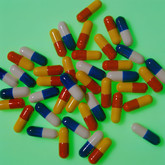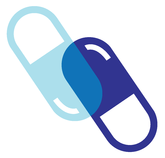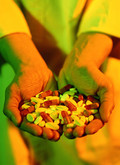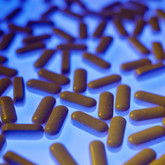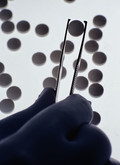Generics/Research
First pregabalin generics approved by FDA
In July 2019, the US Food and Drug Administration (FDA) approved multiple applications for the first generics of Lyrica (pregabalin) for the management of fibromyalgia, postherpetic neuralgia, neuropathic pain associated with diabetic peripheral neuropathy or spinal cord injury, and as adjunct therapy for partial-onset seizures in patients aged 17 years or over.
Strong generics nocebo effect found in US
In the US, generic drug products account for approximately 90% of all prescriptions dispensed [1]. Despite this, there is a continued lack of trust in these drug products. Generics are often perceived as less effective and less safe than their brand-name reference products. Now, researchers at Brigham and Women’s Hospital and Harvard Medical School have confirmed that in the US, generics exhibit a strong nocebo effect. Here, negative bias against generics leads to negative clinical outcomes [2]. The researchers call for more education about generics to increase awareness of their benefits and increase access to these lower-priced medicines.
New evidence: comparable clinical outcomes for generic and brand medications
New research carried out at Brigham and Women’s Hospital and Harvard Medical School, provides additional evidence that shows generic and brand-name drugs have comparable clinical outcomes [1].
Evaluating success: generics substitution policy in Chile
The effectiveness of Chile’s 2014 generics substitution policy has been assessed by an international team of researchers. In their BMJ Global Health [1] article, the authors reveal that, although there has been a decrease in the uptake of expensive originator drugs, this is not mirrored by an increase in the uptake of less expensive bioequivalent products. This shows that further work is needed to help increase the uptake of generics in Chile.
Generics in Chile: policy success but promotion required
A first-time evaluation [1] of Chile’s generics substitution policy has shown that there has been a decrease in sales of branded originator medicines since policy implementation in 2014. However, this was not mirrored by an increase in sales of the corresponding generic drug products. The BMJ Global Health [1] article authors note that, to improve access to medicines in Chile, more work needs to be done to promote the uptake of generics.
TRIPS flexibilities: current and future use in the SADC region
In response to the HIV/AIDS crisis of the late 1990s, several legal options were introduced to facilitate access to lower-cost treatments. These included flexibilities in the World Trade Organization (WTO) Trade-Related Aspects of Intellectual Property Rights (TRIPS) Agreement, known as ‘TRIPS flexibilities’. In a recent review, authors ‘t Hoen, Kujinga and Boulet describe TRIPS flexibilities and discuss their current and future use in the Southern African Development Community (SADC) region [1].
Improving access to medicines: the Doha Declaration on the TRIPS Agreement
In a recent review, authors ‘t Hoen, Kujinga and Boulet describe the role of the Doha Declaration on the World Trade Organization (WTO) Trade-Related Aspects of Intellectual Property Rights (TRIPS) Agreement in improving access to essential medicines [1].
Patent challenges in the SADC region
High pharmaceutical prices restrict access to essential medicines. New medicines are often patent protected which sustains prices well above the cost of production. This problem was particularly apparent during the HIV/AIDS crisis in the late 1990s. At this time, 40 million people were believed to be infected with HIV in the developing world and only one in a thousand had access to the required antiretroviral medicines (ARVs). This situation led to conflicts regarding patents for HIV medicines, only a few years after the establishment of the World Trade Organization (WTO) and the WTO Trade-Related Aspects of Intellectual Property Rights (TRIPS) Agreement. TRIPS established international standards to protect intellectual property, including a 20-year patent protection for medicines.
Generic irbesartan is safe and effective, shows phase IV trial
Generic versions of the anti-hypertensive irbesartan are equally effective as their branded counterparts, finds a phase IV study conducted in Korea. The study also found that irbesartan is less effective in patients with a high body mass index (BMI) or a history of anti-hypertensive use, suggesting more intensive treatment may be needed in some patients [1].
Prices for infectious disease treatments and how to reduce them
A recent review from Harvard Medical School explores the factors fuelling high drug prices in the US, suggesting several ways to avoid exorbitant pricing, including increasing clinician awareness of healthcare costs [1].
